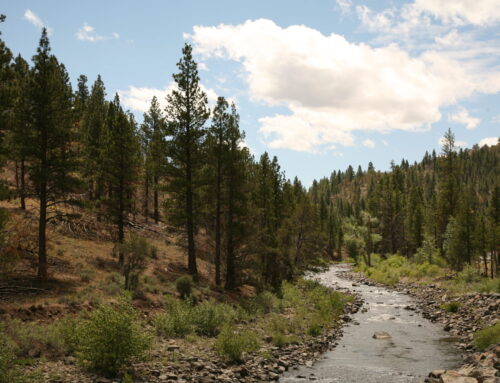‘Protect Ontario’ bills are bad for environment, Pelham group says
June 6, 2025
Members of environmental groups across Niagara are calling on the Ford government to scrap a pair of bills that they say will be devastating to the environment and ignore Indigenous peoples’ concerns.
About 80 people, representing groups like Pelham Advocates for Trees and Habitat (PATH), 50by30 Niagara, and the Grimsby Environmental Network gathered in front of Niagara West MPP Sam Oosterhoff’s constituency office on Tuesday night to protest Bill 5, the Protect Ontario by Unleashing Our Economy Act, and Bill 17, the Protect Ontario by Building Smarter and Faster Act. Critics say the bills strip away environmental safeguards, do not do enough in terms of consultations with Indigenous peoples, water down the Endangered Species Act and more.
For PATH’s Mike Jones, he said it was important for the group to be there to express its displeasure not only with the bills, but with Oosterhoff himself, who Jones said had decided after meeting with representatives from PATH and others last April, “only wanted to pick and choose what he wanted to bring back (to Queen’s Park).”
Those issues were surrounding Indigenous rights and concerns about civil liberties, Jones said, and ignored a myriad of environmental concerns.
“It takes away our democratic rights and rights from the municipalities as well as the Indigenous groups,” Jones said.
The Province, meanwhile, says the legislation will help it speed up resource and infrastructure projects by streamlining the permit process by reducing duplication. What concerns most protestors, though, is that the legislation would allow the Province to create Special Economic Zones, where the government could allow companies or developers exemptions from provincial laws and regulations.
Bill 5 also scraps the current Endangered Species Act with what it calls The Species Conservation Act. Groups across the province have expressed opposition to the change.
Bill 17, meanwhile, provides measures to speed up the approvals process and streamline development charges as well as speed up infrastructure projects, particularly those planned near transit corridors.
Jones was impressed by the turnout to the protest.
“I think this was one of our largest rallies we had in Niagara ever since Ford has taken over,” Jones said. “There were bypassers that were honking and giving us a thumbs up as well. We talked to a few people coming down, and people actually came over to sign a petition to take against Bill 5 that was going to be taken to is to be taken to the legislature (Wednesday).”
Annette Gibbons, of the Grimsby Environmental Network, spearheaded the event and was impressed by how things went.
“I was really encouraged by all the different groups that came out,” she said.
Gibbons was also at the same meeting with Oosterhoff as Jones and like the PATH president, she was not impressed.
“That really didn’t go anywhere. It was very disappointing,” she said. “Because we’re environmental groups, we really had a big concern about species at risk and the fragmentation of habitat and just bulldozing over things that shouldn’t be.”
In a statement emailed to PelhamToday, Oosterhoff said the government “is committed to listening to First Nations so we can get this right – because we believe in working together to build a process that benefits all communities and fosters responsible development.”
To address concerns expressed by First Nations, he said “tangible action” has been takem in the form of amendments to Bill 5 that detail’s the government’ commitment to the Duty to Consult process.
“Our consultation process is more than a commitment…meaningful collaboration ensures First Nations’ voices are heard and concerns are addressed throughout the entire process,” Oosterhoff wrote.
A meeting this past week of First Ministers illustrated how governments across the country need to speak with one voice to fight against the Trump tariffs.
“We are in a battle to save our economy, and we can no longer afford years of delay to major projects while others are getting shovels in the ground.”
Bill 5, he wrote, will bring projects forward faster.
“We are acting with urgency because it cannot take 15 years to open a mine – Ontario is one of the slowest permitting jurisdictions in the OECD. Speeding up this process is essential to unlocking economic growth and creating job opportunities for communities”
Updated with comment from MPP Sam Oosterhoff.
Search
RECENT PRESS RELEASES
Related Post




